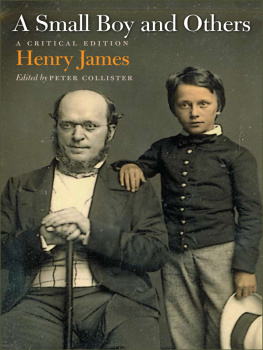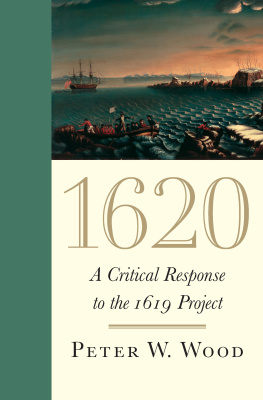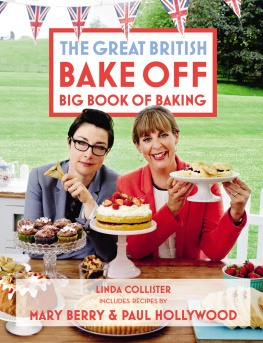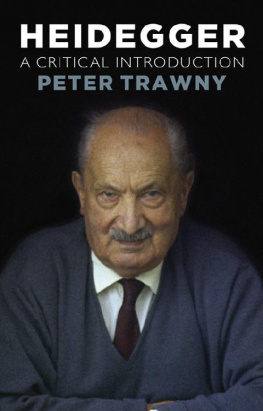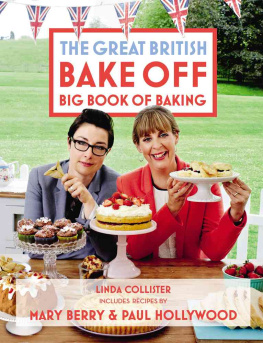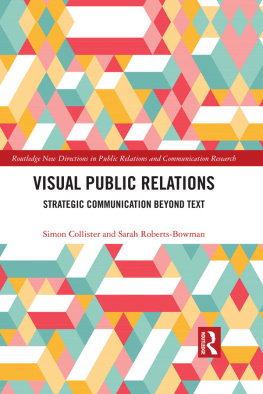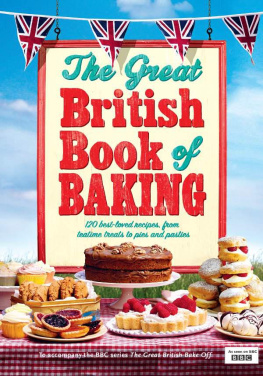Collister Peter - A small boy and others: a critical edition
Here you can read online Collister Peter - A small boy and others: a critical edition full text of the book (entire story) in english for free. Download pdf and epub, get meaning, cover and reviews about this ebook. City: Charlottesville, year: 2011, publisher: University of Virginia Press, genre: Detective and thriller. Description of the work, (preface) as well as reviews are available. Best literature library LitArk.com created for fans of good reading and offers a wide selection of genres:
Romance novel
Science fiction
Adventure
Detective
Science
History
Home and family
Prose
Art
Politics
Computer
Non-fiction
Religion
Business
Children
Humor
Choose a favorite category and find really read worthwhile books. Enjoy immersion in the world of imagination, feel the emotions of the characters or learn something new for yourself, make an fascinating discovery.
- Book:A small boy and others: a critical edition
- Author:
- Publisher:University of Virginia Press
- Genre:
- Year:2011
- City:Charlottesville
- Rating:3 / 5
- Favourites:Add to favourites
- Your mark:
- 60
- 1
- 2
- 3
- 4
- 5
A small boy and others: a critical edition: summary, description and annotation
We offer to read an annotation, description, summary or preface (depends on what the author of the book "A small boy and others: a critical edition" wrote himself). If you haven't found the necessary information about the book — write in the comments, we will try to find it.
A small boy and others: a critical edition — read online for free the complete book (whole text) full work
Below is the text of the book, divided by pages. System saving the place of the last page read, allows you to conveniently read the book "A small boy and others: a critical edition" online for free, without having to search again every time where you left off. Put a bookmark, and you can go to the page where you finished reading at any time.
Font size:
Interval:
Bookmark:

University of Virginia Press
2011 by the Rector and Visitors of the University of Virginia
All rights reserved
Printed in the United States of America on acid-free paper
First published 2011
9 8 7 6 5 4 3 2 1
Library of Congress Cataloging-in-Publication Data
James, Henry, 18431916.
A small boy and others / Henry James; edited by Peter Collister.
p. cm.
Includes bibliographical references and index.
ISBN 978-0-8139-3082-4 (cloth : acid-free paper)
ISBN 978-0-8139-3081-7 (pbk. : acid-free paper)
ISBN 978-0-8139-3089-3 (e-Book)
1. James, Henry, 18431916. I. Collister, Peter. II. Title.
PS2120.S5 2011
813'.4dc22
[B]
2010038489
T he many biographical works on Henry James and the James family have proved an excellent initial resource in preparing this edition of the novelist's autobiographical writings, as the references in my notes will indicate. For facts about the family background and relationships, Katherine Hastings's genealogical study, William James (17711832) of Albany, N.Y., and his Descendants, offers absolutely accurate detail. Though he has suffered some posthumous disfavor, Leon Edel remains an influential and persuasive voice owing to the broad scope of his endeavors, biographical and editorial. F. O. Matthiessen's The James Family contains useful material and commentary relating both to Henry James Sr. and to William James. Robert C. Le Clair's Young Henry James offers especially interesting detail on the novelist's playgoing experiences in New York, London, and Paris, and R. W. B. Lewis in The Jameses provides insights into the dynamics of family life and the Civil War period.
More recently, Sheldon Novick has constructed a revised and imaginative (if sometimes unreliable) portrait of the novelist's earlier years in Henry James: The Young Master. The multivolume edition of the Correspondence of William James, edited by Ignas Skrupskelis and Elizabeth M. Berkeley, has been indispensable, especially when considering the Jameses' Cambridge years.
Because of the wealth of its meticulously researched detail and depth of insight I have been very reliant (as my notes will testify) on Alfred Habegger's The Father: A Life of Henry James Sr., a model of biographical method. Like many others working on the James family, I have received help and encouragement from Professor Habegger, who has been kind enough to read through some of my work and to share his extensive knowledge. Pierre A. Walker has been equally generous, offering consistently thoughtful and practical advice.
For generously allowing me to quote from previously unpublished James MS materials I am indebted to Bay James, on behalf of the James family, and to Leslie A. Morris, curator of modern books and manuscripts in the Harvard College Library, on behalf of the president and fellows of Harvard College.
During the preparation of this edition I was fortunate to be awarded the Stanley J. Kahrl Fellowship in Literary Manuscripts, Houghton Library, Harvard University. I was grateful for such an endorsement of my project and for the financial support it provided. It was a pleasure to work in such an inspirational environment. All the staff at Houghton were uniformly kind and helpful, and I must mention by name Leslie A. Morris, Peter Accardo, Susan Halpert, and Mary Haegert who have continued to support my work.
I have also benefited from the excellent resources and the support of the expert staff at the British Library (where I have been helped especially by Jenny Grimshaw, Dorian Hayes, Lyn Norvell, Lisa Oladeinde, Tim Pye, and Matthew Shaw). The staff of the London Library (from where my cycle ride home necessarily involved passing one of James's earliest London addresses, in Half Moon Street) have been characteristically helpfulespecially so, in light of the Library's major building project currently in progress. I also used the resources of the Bodleian Library, Oxford, and was made welcome at the Vere Harmsworth Library, Rothermere American Institute, Oxford, where Isabel Holowaty proved very generous in offering me both time and advice. Carroll Odhner, director of the Swedenborg Library, Bryn Athyn College, Pennsylvania, was very helpful with my queries about Swedenborg. The New England Historic Genealogical Society and the Massachusetts Historical Society also provided me with information.
Many individualson both sides of the Atlantichave offered information and advice, and I am grateful to the following: Peter C. Caldwell, Charles Capper, Jack Furniss, Joseph E. Glatthaar, Elaine Grublin, Charles J. Hayes, Celia Heath, Eric Homberger, Park Honan, Steven C. Jobe, Richard Kaufman, Jack Lucy, James M. McPherson, Adeline Morris, William S. Peterson, Jeanne Ritchie, Letha Clair Robertson, Frida Robinson, David J. Rothman, Roberta Sheehan, Richard Sheldon, Alan Steel, Christopher A. Strong, Hannah Sullivan, Kathryn Summerwill, James L. Yarnall, and Greg Zacharias. Any remaining errata are undoubtedly my own.
A very kind woman in Newport, Rhode Island, whose name I didn't get, when asked for directions, insisted on driving me to the stone house on the corner of Spring and Lee streets inhabited by the Jameses in the early 1860s. Its current owner, Charles J. Hayes, welcomed an unannounced stranger and insisted on my viewing the whole place. Nearer home, my string quartet-playing friends have consistently shown more-than-polite interest in my work.
The anonymous readers of my original proposal for the University of Virginia Press made useful suggestions, and Cathie Brettschneider, the press's humanities editor, has been a constant and very supportive presence; I have deeply appreciated her kindness and intelligence. Ruth Melville has proved to be an exemplary copy editor of the manuscript, and I have valued her expert advice. Morgan Myers has also been a helpful and responsive project editor. Finally, John Aplin has spared me much time from his own large-scale biographical studies of the Thackeray family and has helped me with many of the challengesoften technologicalthat have inevitably arisen over the years.
B efore the psychologist and philosopher William James died at his country home at Chocorua, New Hampshire, in the late summer of 1910, he and Henry, the two surviving brothers of five siblings, had spent many weeks together. This ideal Elder Brother,
In his final decade there is evidenceaside from these autobiographical worksthat Henry James was drawn increasingly to consider and even to account for his past, both directly and, more obliquely and perhaps revealingly, through his fiction. The substantial critique of American culture and society, The American Scene, which resulted from the year (19045) spent revisiting and exploring his native land, returned him to his youth and to what his past represented after a lifetime spent predominantly in Europe. Many of its landmarks are, however, less topological than subjective, recognitions of moments that contributed to the formation of selfhood within a personal narrative; he abandons himself to impressions and memories with a freedomeven indiscretionrarely found in the fiction.
Yet it is in a short story that he confronts, through the medium of a hero loosely of his own age and position, the darkest, least resolved contours of identity, national and psychic. The Jolly Corner begins with an exploration of self and of self in relation to place which leads its hero into desired opportunities for terror, self-deception, and even the presence of death as he speculates on what, had he remained in the New York City of his childhood, he might have become. Brydon Spencer's prowling through the extensive family home occurs, by preference, in darkness as he moves from floor to floor, doorway to doorway, in obsessive pursuit of, and sometimes flight from, his Other. In his exile he has lived through undefined but emphatically unnatural experiences: staying in New York, he might have achieved material success as a dealer in real estate, a ruling functionary of business, and thus, implicitly in Jamesian rationale, an ideal of American masculinity. Drawn to and at times repelled by the presence he pursues, he is finally savedbut also claimedby the woman who loves him. The incomplete novels,
Font size:
Interval:
Bookmark:
Similar books «A small boy and others: a critical edition»
Look at similar books to A small boy and others: a critical edition. We have selected literature similar in name and meaning in the hope of providing readers with more options to find new, interesting, not yet read works.
Discussion, reviews of the book A small boy and others: a critical edition and just readers' own opinions. Leave your comments, write what you think about the work, its meaning or the main characters. Specify what exactly you liked and what you didn't like, and why you think so.

